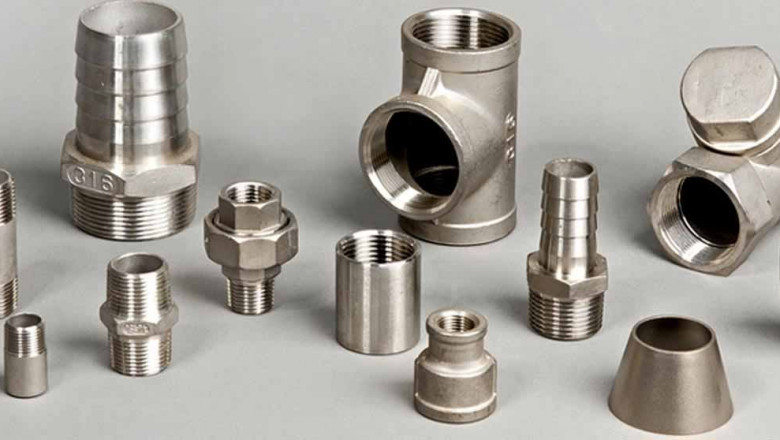views
Titanium pipe fittings are essential components used to connect sections of piping or tubing in various industrial systems. Made from titanium—a metal known for its strength-to-weight ratio, corrosion resistance, and biocompatibility—these fittings are ideal for highly demanding environments. They are widely used in sectors such as aerospace, chemical processing, marine engineering, and medical applications.
What Makes Titanium Pipe Fittings Superior to Other Metal Fittings?
The superiority of titanium pipe fittings lies in their unique material properties, which include:
-
Corrosion resistance: Titanium naturally forms a protective oxide layer, making it extremely resistant to acids, chlorides, seawater, and other corrosive agents.
-
High strength-to-weight ratio: Lighter than steel but equally strong, which reduces structural load.
-
Temperature resilience: Performs well in both extremely high and cryogenic temperatures.
-
Non-toxic and biocompatible: Safe for medical and food-grade applications.
-
Long service life: Even under harsh conditions, titanium fittings maintain their performance with minimal degradation over time.
These benefits result in lower maintenance costs, reduced downtime, and increased safety across industrial systems.
What Types of Titanium Pipe Fittings Are Available?
Titanium pipe fittings are manufactured in various types to suit different connection needs:
-
Elbows (90° and 45°): Used to change the direction of flow.
-
Tees: Allow branching of the pipe system.
-
Reducers: Connect pipes of different diameters.
-
Couplings and unions: Used to connect two lengths of pipe.
-
Stub ends and flanges: Facilitate easier assembly and disassembly of pipeline sections.
They are usually made from titanium grades such as Grade 2 (commercially pure) and Grade 5 (Ti-6Al-4V), depending on the application's strength and corrosion resistance requirements.
Where Are Titanium Pipe Fittings Commonly Used?
The use of titanium pipe fittings spans multiple industries, especially where durability, chemical stability, and performance are paramount:
-
Aerospace and aviation: Fuel systems, hydraulic lines, and structural tubing.
-
Chemical and petrochemical industries: Piping systems that transport aggressive acids or solvents.
-
Marine and offshore: Desalination plants, seawater cooling, and shipbuilding.
-
Medical equipment: Piping in surgical tools and implants due to titanium’s biocompatibility.
-
Power generation: In nuclear plants and heat exchangers exposed to corrosive conditions.
Thanks to their exceptional characteristics, titanium fittings are trusted for critical systems that cannot afford material failure.
How to Select the Right Supplier for Titanium Pipe Fittings?
When sourcing titanium pipe fittings, consider the following factors:
-
Material certification: Ensure the fittings comply with ASTM B363 or relevant standards.
-
Supplier credibility: Choose experienced suppliers with proven track records.
-
Inventory and customization: Look for stock availability in different sizes and the ability to meet custom specifications.
-
Quality assurance: Testing and inspection reports should accompany all shipments.
Always work with a supplier who provides technical support and transparent quality control procedures to ensure you get the right fittings for your system.
Conclusion:
Titanium pipe fittings offer unmatched performance in demanding conditions, making them an ideal choice for high-performance and long-lasting piping systems. Whether you're working in aerospace, marine, or chemical industries, these fittings deliver reliability, safety, and efficiency you can count on.














Comments
0 comment